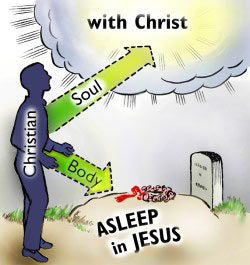 This video argues that while there is certainly truth to the fact that organisms evolve (microevolution) the whole scale tree of life posited by Darwinism (macroevolution) is more akin to a mythological extrapolation than hard science. Evolution can be defined simply as change through time, and it can refer to anything that changes. Languages evolve; tastes evolve; cultures, art forms, and government bureaucracies evolve. Change over time — the present is different from the past – I think everyone will agree that in this sense evolution does indeed occur. The plethora of meanings of the word Evolution – are frequently exploited by Darwinists. Darwinists pretend to be selling students on “change over time” while they are really peddling Darwinism. While Darwinists have attempted to distance themselves from the term Darwinism, it will show that this fails as well. Darwinism is religious position and it always has been. I originally produced this in two parts a couple years ago that I have combined into one 20 minute presentation since Youtube has extended the maximum video length.
This video argues that while there is certainly truth to the fact that organisms evolve (microevolution) the whole scale tree of life posited by Darwinism (macroevolution) is more akin to a mythological extrapolation than hard science. Evolution can be defined simply as change through time, and it can refer to anything that changes. Languages evolve; tastes evolve; cultures, art forms, and government bureaucracies evolve. Change over time — the present is different from the past – I think everyone will agree that in this sense evolution does indeed occur. The plethora of meanings of the word Evolution – are frequently exploited by Darwinists. Darwinists pretend to be selling students on “change over time” while they are really peddling Darwinism. While Darwinists have attempted to distance themselves from the term Darwinism, it will show that this fails as well. Darwinism is religious position and it always has been. I originally produced this in two parts a couple years ago that I have combined into one 20 minute presentation since Youtube has extended the maximum video length.
Evolution is Scientific Fact? Darwinism is Not!
Who were the Nephilim? A Response to Herescope & Larry DeBruyn
 Pastor Larry DeBruyn has written a reply in response to my defense of Tom Horn and Chuck Missler which he posted at his own website here and at the herescope site here. I respect him as servant of the Lord, as well as the folks at Herescope who usually seem to be well intended. I have no personal axe to grind but I will call it like I see it. The original article entitled “Doomsday Datesetters 2012” is hyperbolic and inaccurate as both Missler and Horn are outspoken against date setting. I find this unfortunate as I have admired the work of Sarah Leslie in the past.
Pastor Larry DeBruyn has written a reply in response to my defense of Tom Horn and Chuck Missler which he posted at his own website here and at the herescope site here. I respect him as servant of the Lord, as well as the folks at Herescope who usually seem to be well intended. I have no personal axe to grind but I will call it like I see it. The original article entitled “Doomsday Datesetters 2012” is hyperbolic and inaccurate as both Missler and Horn are outspoken against date setting. I find this unfortunate as I have admired the work of Sarah Leslie in the past.
DeBruyn’s essay is well written and reflects more serious scholarship than the previous offering. While he acknowledges that the “sons of God” are certainly to be understood as supernatural beings, he advocates an odd non-contingent interpretation of the Nephilim’s relationship to the “sons of God.” His interpretation lacks force as no ancient commentator nor modern Hebrew scholar I can find agrees with it. Exegesis is about getting to what the original author meant, not simply offering possible readings. This was all addressed thoroughly enough in my original post (refer to the quote form the Word Biblical Commentary). Scholarship aside, I find his essay objectionable because DeBruyn has quoted me out of context, appropriating the same misleading methodology as Gaylene Goodroad. DeBruyn writes:
Based upon this interpretation, this critic of the Herescope post cavalierly dismisses Mrs. Goodroad’s alternative interpretation “as an example of very poor exegesis” and that “there really is no valid scholarship to suggest otherwise”?[4] Condescendingly, he asserts that Mrs. Goodroad’s take is “histrionic” (i.e., meaning “excessively emotional or dramatic”).[1]
While it is easy to burn straw men, it doesn’t advance the discussion. This is a demonstrably unfair and inaccurate presentation of my criticism. I certainly did call her exegesis poor and her criticism histrionic but he has taken it out of context. I wrote “she seems histrionic in her assertions:” punctuated with a colon in specific reference to her accusation that the majority opinion amongst scholars (the supernatural offspring view) is a “scheme to downplay the importance of the incarnation…it takes away from Christ’s uniqueness, virgin birth, atonement” and that it “diminishes the Gospel!”[2] I wonder if she will also accuse Francis Schaeffer of “scheming to downplay the incarnation.” It is histrionic and patently absurd. My original criticism is actually quite generous. DeBruyn continues:
In his fine commentary on Genesis, Allen Ross notes “four predominant interpretations of the ‘sons of God’: they are
- the line of Seth, the godly line;
- fallen angels;
- lesser gods; or
- despots, powerful men.”[6]
As evidenced by reading both the Horns’ and Goodroad’s interpretations, both fall within the interpretative options Ross lists; the Horns identifying with number two, and Goodroad with number four. Obviously, if Goodroad’s interpretation falls within the fourth category, it is unfair to call her understanding “poor” and “histrionic.”
Again “histrionic” only seems unfair divorced from the context I offered it in. Why does he resort to such misleading antics? It is also important to note that the fact that a commentary lists four views says nothing about their validity. As my original post documented Hebrew Bible scholars are in wide agreement that the text means the Nephilim were the offspring of the fallen angels and human women. The commentary I quoted presented textual and historical evidence. Proper exegesis is to interpret a passage on its own terms interacting with the original languages. The goal is the author’s intent. Neither Goodroad nor DeBruyn are doing that in my opinion. They are relying on English translations and seem to have a preconceived agenda. That her exegesis was poor is also evidenced by her referring to the term “Watchers” as some sort of apocryphal device when it is used by the prophet Daniel in canonical scripture (Dan 4:13, 17, 23). Not to mention, that she argues the Nephilim were simply “big bullies” rather than supernaturally endowed. DeBruyn presents a slightly better argument by G. Charles Aaslders:
It has been correctly pointed out that the text establishes no causal connection between these two historical phenomena. In fact, the text specifically states that the giants were already present when the “sons of God” produced children by the “daughters of men.”[3]
If this is so, I wonder why the vast majority of Hebrew scholars see it otherwise. This is where exegesis comes into play. Using the Hebrew/English reverse interlinear in my logos bible software I quickly see that the Hebrew text of Genesis 6:4 reads:
The key term here אֲשֶׁר, rendered “when” in English also carries the meaning of “because.”
834 אֲשֶׁר, בַּאֲשֶׁר, כַּאֲשֶׁר, מֵאֲשֶׁר [’aher /ash·er/] . A primitive relative pronoun (of every gender and number); TWOT 184; GK 889 and 948 and 3876 and 4424; 111 occurrences; AV translates as “which”, “wherewith”, “because”, “when”, “soon”, “whilst”, “as if”, “as when”, “that”, “until”, “much”, “whosoever”, “whereas”, “wherein”, “whom”, and “whose”. 1 (relative part.). 1a which, who. 1b that which. 2 (conj). 2a that (in obj clause). 2b when. 2c since. 2d as. 2e conditional if. [4]
That definition surely supports a causal relationship. I will be the first to admit that I am not a Semitic languages scholar but Dr. Michael Heiser, the academic editor for logos bible software, is a recognized authority. I emailed him the above argument by Aaslders that there was no causal connection and that the Nephilim were already present. He wrote back,
“I know of no grammatical possibility for this – ask him to produce it.”
Pastor DeBruyn, that is an invitation from Dr Heiser to mount an argument from the Hebrew grammar that supports a non-causal interpretation. As far as DeBruyn’s view that there was nothing genetic going on with the Nephilim he contends,
Via the mating process, the “sons of God” appeared to have transgressed the created order of life, terrestrial and extraterrestrial, by infusing the “the daughters of men” with supernatural powers that they in turn, and in an occult way, passed on to the nephilim-gibborim, powers that might be compared unto those that will belong to the “man of sin” at the end of the age,[5]
While this is an interesting theory and likely has truth to it, I don’t understand the pressing need to divorce the account of any space-time material substantiality. Angels manifest as physical beings in the bible, for instance the “men” that visited Abraham come to mind (Gen 18). The men of Sodom surely had little doubt about their material potential (Gen 19:5). But DeBruyn concludes,
In short, the Genesis record does not support the fantastic construct that the change in the nephilim was physical. When the sons of God took the daughters of men to wife, the nephilim were already giants.[6]
Again a quote from a dated commentary will not suffice. This is not supported by exegesis and it doesn’t make much sense logically. The text connects them firmly to the offspring of the angels (Gen 6:4). While I don’t know if it was genetic or purely supernatural, I suspect it was both. How can anyone say that there was no genetic component? Giantism is a genetic condition and the biblical text also supports further evidence of mutations,
And there was again war at Gath, where there was a man of great stature, who had six fingers on each hand, and six toes on each foot, twenty-four in number, and he also was descended from the giants.(2 Sa 21:20)
That sure sounds physical to me!
[1] Larry DeBuryn, “Demons, Daughters and DNA,” http://guardinghisflock.com/2011/06/22/demons-daughters-and-dna/ (accessed 6/24/2011).
[2] Gaylene Goodroad, “DOOMSDAY DATESETTERS 2012,” http://herescope.blogspot.com/2011/06/doomsday-datesetters-2012.html (accessed 6/24/2011).
[3] G. Charles Aalders, Genesis: Bible Students Commentary, Volume I, and William Heynen, Translator (Grand Rapids, MI: Zondervan Publishing House, 1981): 156. [As quoted by Deburyn]
[4] James Strong, The Exhaustive Concordance of the Bible : Showing Every Word of the Text of the Common English Version of the Canonical Books, and Every Occurrence of Each Word in Regular Order., electronic ed. (Ontario: Woodside Bible Fellowship., 1996), H834.
What Happens When You Die?
 What happens when you die? The Bible uses the word death in different senses. Jesus said: “And do not fear those who kill the body but cannot kill the soul. Rather fear him who can destroy both soul and body in hell” (Mt 10:28). Also in Revelation 20:6, John speaks of a “second death,” apparently distinguishing it from the first death or the usual understanding of death. It is important to note that the only way to escape the second death and Hell is through the Lord Jesus Christ (Jn 11:26). Make sure to be in on that one! Now we turn to what happens to Christian believers at the “first death.” Paul addresses the issue of what happens to Christians when they die in 2 Corinthians 5:8 when he says “we would rather be away from the body and at home with the Lord.” This refers to the intermediate state between a believer’s death and the resurrection of all believers’ bodies at the Parousia. I have always thought that heaven is temporary state until Jesus returns for the general resurrection of the dead (Dan 12:2; Rev 20:4-6). So if you die before Christ returns, I always assumed you exist as a spirit until then. It seems to me that we consist of material and immaterial elements and in our present lives we are in a state of conditional unity. A useful analogy for conditional unity comes from chemistry.
What happens when you die? The Bible uses the word death in different senses. Jesus said: “And do not fear those who kill the body but cannot kill the soul. Rather fear him who can destroy both soul and body in hell” (Mt 10:28). Also in Revelation 20:6, John speaks of a “second death,” apparently distinguishing it from the first death or the usual understanding of death. It is important to note that the only way to escape the second death and Hell is through the Lord Jesus Christ (Jn 11:26). Make sure to be in on that one! Now we turn to what happens to Christian believers at the “first death.” Paul addresses the issue of what happens to Christians when they die in 2 Corinthians 5:8 when he says “we would rather be away from the body and at home with the Lord.” This refers to the intermediate state between a believer’s death and the resurrection of all believers’ bodies at the Parousia. I have always thought that heaven is temporary state until Jesus returns for the general resurrection of the dead (Dan 12:2; Rev 20:4-6). So if you die before Christ returns, I always assumed you exist as a spirit until then. It seems to me that we consist of material and immaterial elements and in our present lives we are in a state of conditional unity. A useful analogy for conditional unity comes from chemistry.
Did you know that every summer, including this one, thousands of people will die from dihydrogen monoxide inhalation? Yes it is true… they drown while swimming in pools, the ocean or lakes. It’s a bad joke. Dihydrogen monoxide is H20 or plain old water. Now of course we all know that water is not usually dangerous and is, in fact, essential for life. But what happens when you break water down into its two components hydrogen and oxygen? It suddenly takes on drastically different properties. In fact, it gets downright dangerous. In the presence of an oxidizer like oxygen, hydrogen can catch fire, sometimes explosively, and it burns more easily than gasoline does. According to the American National Standards Institute, hydrogen requires only one tenth as much energy to ignite as gasoline does. So when water is separated into its two elements, they are nothing like water. It seems appropriate to think of the body and soul in the same way. In life we are like a molecule consisting of body and soul. At death the material and immaterial are separated and take on different properties. The material body decays and the immaterial soul transfers into the spiritual dimension. So what does the New Testament tell us about this process?
According to some scholars, Paul does not seem to believe in a bodiless ethereal state in heaven rather an immediate transformation to a new body. F.F. Bruce thinks Paul’s view is that some sort of body is essential to personhood.[1] This is most evident in 2 Corinthians 5:1-5 where he speaks of putting on the heavenly dwelling. Paul argues that we put it on so that we will “not be found naked” (2 Cor 5:3) which likely refers to the intermediate state in which believers’ spirits are with God but they do not yet enjoy their resurrected bodies. Accordingly, Bruce argues that Paul did not envision an intermediate state as a disembodied spirit and that it is difficult to distinguish any difference between this and the glorified body believers are to receive at the Parousia (1 Cor. 15:51). He believes that Paul is teaching that believers receive their eternal resurrection bodies at death, rather than waiting for Christ to return in glory.[2]
But our citizenship is in heaven, and from it we await a Savior, the Lord Jesus Christ, who will transform our lowly body to be like his glorious body, by the power that enables him even to subject all things to himself. (Php 3:20-21)
Scholars have different views on this. Like Bruce, W. D. Davies argues, “there is no room in Paul’s theology for an intermediate state of the dead.”[3] But 1 Corinthians 15:51-53 seems to place this at the last trump – the return of Christ. The general consensus of conservative theologians seems to support an intermediate state between death and the resurrection body. Millard Erickson argues, “there is no inherent untenability about the concept of disembodied existence. The human being is capable of existing in either a materialized (bodily) or immaterialized condition.”[4] Many commentators view the 2 Corinthians 5:1 passage as Paul’s “hope of receiving the resurrection body at Christ’s return.”[5] Another view of Paul’s argument about “not being found naked” is that it was intended as a polemic against those who taught existence in a state of disembodied immortality.[6] There are passages in the Bible that seem to support the idea of a temporary disembodied soul state (Rev 6:9) but even here these tribulation martyrs put on white robes. Isaiah 14:9-10 seems to describe the disembodied souls of the dead being “stirred up.” 2 Corinthians 12:2-3 also supports the idea of existence outside of a body. I guess biggest question you have to ask is that if we get a body at death, then what is resurrection of the dead at Christ’s return for? It would no longer seem necessary (1 Thes 4:17; Rev 20:4). It seems to be tied to our old body in some way. Accordingly, there seems to be an intermediate state of some sort. A humble posture is in order as the evidence does not seem conclusive either way. Perhaps the resurrection body is granted but not fully realized until Christ’s return?
Either way the biblical teaching is clear that believers enjoy immediate fellowship with the Lord. Contrary to the teachings of Seventh Day Adventists and Jehovah’s Witnesses, the idea of soul sleep is not supported by the biblical text (Luke 23:43; Phil. 1:23; Heb. 12:23). This offers great comfort to the loved ones of Christians. They need not grieve as those who have no hope (1 Thes 4:13). Finally, 2 Corinthians 5:6-10 offers ample motivation for living to please God as well. We are charged to live courageously in knowledge that we will soon appear before the judgment seat of Christ when we shall give an account of our lives (Ro 14:12).
[1] F. F. Bruce, Paul: Apostle of the Heart Set Free (Grand Rapids: Eerdmans Publishing Co., 1977), 311.
[2] Bruce, Paul, 312.
[3] W. D. Davies, Paul and Rabbinic Judaism (London: SPCK, 1955), pp. 317–18.
[4] Millard J. Erickson, Christian Theology, 2nd ed. (Grand Rapids, Mich.: Baker Book House, 1998), 1189.
[5] Thomas D. Lea and David Alan Black, The New Testament : Its Background and Message, 2nd ed. (Nashville, Tenn.: Broadman & Holman Publishers, 2003), 422.
[6] Kenneth L Barker, Expositor’s Bible Commentary (Abridged) (Grand Rapids, MI: Zondervan Publishing House, 1994), 676.
What is Biblical Faith?
 The term “faith” is often maligned. Mark Twain is famous for saying, “Faith is believing what you know ain’t so.” In a similar vein, the atheist evangelist, Richard Dawkins, argues that faith is merely “belief without evidence” or even a process of intentional non-thinking.[1] I find this to be disingenuous. I argue that biblical faith is more akin to an earned trust like that between a husband and wife. I have faith based on an earned trust in my spouses’ character. According to a theological dictionary it refers both to intellectual belief and to relational trust or commitment.[2] Accordingly, my faith is based on evidence.
The term “faith” is often maligned. Mark Twain is famous for saying, “Faith is believing what you know ain’t so.” In a similar vein, the atheist evangelist, Richard Dawkins, argues that faith is merely “belief without evidence” or even a process of intentional non-thinking.[1] I find this to be disingenuous. I argue that biblical faith is more akin to an earned trust like that between a husband and wife. I have faith based on an earned trust in my spouses’ character. According to a theological dictionary it refers both to intellectual belief and to relational trust or commitment.[2] Accordingly, my faith is based on evidence.
Christians should be cautious about how they represent their faith. The Gospel of John is an evidential argument based on the signs done by Jesus that is designed to produce a faith response (Jn 20:38). The Bible is a proven entity. It has stood the test of time for thousands of years and continues to change lives. It merits trust from its proven historical veracity, fulfilled prophecy and from the transcendent self-authenticating quality of Jesus’ teachings. Accordingly, biblical faith is more akin to earned trust than the blind leap that skeptics argue for. In fact, faith as derived from the Hebrew prophet Habakuk is a cornerstone of New Testament theology.
The famous quote from Habakuk reads, “Behold, his soul is puffed up; it is not upright within him, but the righteous shall live by his faith” (Hab 2:4). It is quoted by Paul in Galatians 3:11, Romans 1:17 and arguably also by Paul in Hebrews 10:38. When read together devotionally, it seems to connect the three books. In fact, Martin Luther used this passage to start the reformation theology of “justification by faith.” It seems that the Catholic Church had become like the errant Galatians in thinking that they must earn their salvation. Luther’s idea coheres nicely with the theme from Galatians that we are not saved by works of the law rather the law becomes our task master. Men like to take credit for their accomplishments which is why the Gospel is so counterintuitive. But we cannot justify ourselves, God does it for us by his grace. For me, that distinguishes Christianity from manmade religions. Men would never make it up since they couldn’t somehow take credit. The central message of Galatians is “a person is not justified by works of the law but through faith in Jesus Christ” (2:16). In light of the modern propensity to obfuscate faith, I think one could render that “through trust in Jesus Christ” just as correctly.
[1] Richard Dawkins, “Is Science a Religion?” American Humanist Association. http://www.thehumanist.org/humanist/articles/dawkins.html (accessed June, 19, 2011).
[2]Stanley Grenz, David Guretzki and Cherith Fee Nordling, Pocket Dictionary of Theological Terms (Downers Grove, Ill.: InterVarsity Press, 1999), 50.
In Defense of Horn & Missler: A Response to Gaylene Goodroad
Tom Horn and Chuck Missler have recently been vehemently criticized by Gaylene Goodroad of the Herescope website. While it is fair to say they are colorful characters, both men are committed Christians, strong advocates of dispensationalism and writers/producers of popular media. I have read and studied the works of both men. In fact, Chuck Missler’s Bible teaching had a lot to do with leading me to Christ. It should be said that he teaches the entire Bible not just prophecy and controversial subjects. Similarly, Horn has worked as a pastor and administratively at the top levels of the Assemblies of God denomination. They both believe Jesus will return sooner rather than later but to my knowledge neither set dates nor advocate doing so. Admittedly, they both take speculative and controversial stands that might be considered unconventional but I would not label either as heretical. I don’t agree with everything they write but I do find their work thought provoking and interesting. While there is some validity to criticizing their penchant for showmanship and interest in fringe topics, it seems to me that the critique misrepresents them both and is itself an example of very poor biblical exegesis.
Bad Exegesis
Much of Goodroad’s complaint is concerned with the exegesis of Genesis 6. She does not like the idea that the Bible teaches divine beings mated with human women and had mutant offspring who were known as the Nephilim. However, there really is no valid scholarship to suggest otherwise. She seems histrionic in her assertions:
So, does it matter how we interpret the Bible? What is wrong with believing that fallen angels (“Watchers”) mated with humans to produce of hybrid race of creatures (“Nephilim”) that are part angel (god?) and part mortal? Might they be called demigods? One critic of these teachings has said that this scenario is a “scheme to downplay the importance of the incarnation…it takes away from Christ’s uniqueness, virgin birth, atonement.” Mockers can then say, “What’s the big deal with Christ being God and man [the God/Man]—so are the Nephilim?”[20] This also subtly overshadows man’s sin toward his Creator, thus diminishing the Gospel.[1]
This is a blatantly fallacious slippery slope argument. Potential objections from mockers and hyperbolic theological ramifications do not have anything to do with the interpretation of the vocabulary and grammar of the Hebrew text. One should not interpret the Bible emotionally to suit one’s tastes or preconceived notions, the Bible actually speaks very clearly on this issue where many try to obfuscate. Dr. Michael Heiser is an evangelical Christian and Semitic languages expert who argues:
The second tier is marked in the Hebrew Bible by the identification of the members of the divine council as divine family members or “sons of God,” … the context of these references points to divine beings. [2]
He explains reactionary criticisms like Goodroads’ in this way:
Genesis 6:1-4 is one of those texts that, for many, is best left alone. Many contemporary evangelical Bible scholars have gone to great lengths to strip the “mythology” out of it (i.e., the supernatural elements) so as to make it more palatable. But one has to wonder how bending supernatural language to human reason is consistent with the testimony of affirming a supernatural worldview. [3]
Hebrew Bible scholars are in wide agreement on the “divine being” or angelic rendering of “sons of God” in Genesis 6. According to the scholarly Word Biblical Commentary:
The “angel” interpretation is at once the oldest view and that of most modern commentators. It is assumed in the earliest Jewish exegesis (e.g., the books of 1 Enoch 6:2ff; Jubilees 5:1), LXX, Philo De Gigant 2:358), Josephus (Ant. 1.31) and the Dead Sea Scrolls (1QapGen 2:1; CD 2:17–19). The NT (2 Pet 2:4, Jude 6, 7) and the earliest Christian writers (e.g., Justin, Irenaeus, Clement of Alexandria, Tertullian, Origen) also take this line.
Modern scholars who accept this view advance three main reasons for supporting it. First, elsewhere in the OT (e.g., Ps 29:1, Job 1:6) “sons of God” refers to heavenly, godlike creatures. Second, in 6:1–4 the contrast is between “the sons of the gods” on the one hand and “the daughters of man” on the other. The alternative interpretations presuppose that what Gen 6 really meant was that “the sons of some men” married “the daughters of other men.” The present phrase “sons of God” is, to say the least, an obscure way of expressing such an idea. It is made the more implausible by 6:1 where “man” refers to all mankind. It is natural to assume that in v 2 “daughters of man” has an equally broad reference, not a specific section of the human race. Finally, it is pointed out that in Ugaritic literature “sons of God” refers to members of the divine pantheon, and it is likely that Genesis is using the phrase in a similar sense.[4]
Furthermore, the New Testament evidence is completely ignored by Goodroad (2 Peter 2:4–10, Jude 5–7). If not Genesis 6, then what alternative examples from the scriptures can she suggest of Angels sinning (2 Pet 2:4)? Clearly, the New Testament authors are referring to this Genesis 6 episode and understood the “sons of God” in Genesis 6 as supernatural beings. It is also clear enough that this episode involved “angels” and a decision those divine beings made to violate a God given limit when they “abandoned their proper abode” (Jude 6 NAS). Furthermore, the 2 Peter passage indisputably situates this sin at the time of Noah and the Flood (2 Pet 2:5). That the sin committed by the angels was sexual is clear from the vocabulary as well as the linkage to the Sodom and Gomorrah (2 Pet 2:6; Jude 7). In denying the supernatural view of Genesis 6, Goodroad is effectively suggesting that Peter and Jude also misunderstood the passage.
Apologist and philosopher Francis Schaeffer had no problem understanding the text with a supernatural worldview. Commenting on Jude 6-7’s connection to Genesis 6 he wrote:
This passage [Jude 6-7] seems to say that there are angels who left their own proper place and are specifically under judgment because they acted like the people of Sodom and Gomorrah. That is, as the people of Sodom and Gomorrah sought “other flesh” in homosexuality, these angels sought flesh that was “ other flesh”; they involved themselves with human women in what could be called fornication.
There is further interest concerning this if one understands it as a commingling of the angelic and the human, for then it is possible that it was the original historic source of an element common in mythology. More and more we are finding that mythology in general, though greatly contorted, very often has some historic base. And the interesting thing is that one myth that one finds over and over again in many parts of the world is that somewhere a long time ago supernatural beings had sexual intercourse with natural women and produced a special breed of people.[5]
Goodroad also criticizes the use of the term “Watchers” as a term “taken from the apocryphal Book of Enoch” apparently ignorant that it is used three times in the canonical Book of Daniel (Dan 4:13; 4:17; 4:23). In his dissertation, Heiser also argues, “It is clear from these passages that terms like ‘angels,’ ‘archangels,’ ‘Watchers,’ ‘holy ones,’ ‘highest ones,’ and ‘sons of heaven’ overlap.”[6] I’ve never seen any convincing scholarship refuting the angelic view of Genesis 6 that does not reek of anti-supernaturalist eisegesis. For instance, Goodroad resorts to a long refuted canard when she quotes Matthew 22:30 as if it were some sort of evidence against the supernatural view. Apparently she is oblivious to the fact that the text reads the “angels in Heaven.” It is not about the fallen Angels (who are not in heaven) and it says absolutely nothing about Angels abilities to biologically function. Chuck Missler has written an historical explanation of the dubious origins of the humanistic interpretation favored by anti-suprenaturalists known as the Sethite View available here.
Mischaracterizations
On the charges of date setting and using extra biblical sources, Missler has written:
The Bible is filled with admonitions in regards to date setting. The Bible indicates that everything will be established by two or three witnesses (Deuteronomy 19:15; Numbers 35:30; Matthew 18:16; John 8:17; 2 Corinthians 13:1; 1 Timothy 5:19). One would think that these references would be enough, and yet the fascination with date setting continues.[7]
I wonder if she bothered to read the last chapter of Tom Horn’s Apollyon Rising 2012:
A couple of points need clarification at the beginning of this final chapter having to do with 1) date setting and 2) extra-biblical sources for interpreting end times prophecy. Setting dates in particular for eschatological affairs, such as the beginning of sorrows, the return of Christ, or the battle of Armageddon, have been illustrated historically to be unwise, discrediting those who make such predictions concerning the exact timing of future events. In general, Christians should simply always be ready for the end of the age and the coming of Christ, because “ye know not what hour your Lord doth come” (Matthew 24:42). Jesus further told his followers that the exact date of his arrival would be known by “no man, no, not the angels of heaven, but my father only” (Matthew 24:36).[8]
He goes on to write concerning extra-biblical texts:
While most Bible scholars admit these texts can provide invaluable insights for helping students of history fill gaps between cultural and historical events related to the first-century Judaism and the background of Christianity (for instance, The Jewish War and The Antiquities of the Jews by Josephus), they believe these should not be elevated among the divinely inspired or authoritative sources, especially if they contradict or supplant existing canonical teachings (the Bible). [9]
The pseudepigraphal texts tell us the way the Jews of Antiquity understood their scriptures. We refer to them in my seminary course work very often. They are an ancient witness and a valuable aid in proper exegesis. Exegesis is about the authors intent. For instance, from these ancient witnesses like 1st Enoch there is no doubt that the Biblical author meant his reader to understand a divine being when he wrote “sons of God” in Genesis 6. The ancient sources unanimously evidence the supernatural view. As I have shown, the Old and New Testaments also overwhelmingly support the supernatural view of Genesis 6. When read in its ancient context, it’s really beyond dispute exegetically.
The Bottom Line
I don’t see why it is out of line for Christians to speculate about UFOs, aliens, fallen angels or 2012 prophecies as long as it’s represented as speculation. I have never taken it as anything other. The Bible is a supernatural book replete with demon possession and angelic conflicts (Eph 6:12; Dan 10:20). Could fallen angels be up to mischief masquerading as aliens? Apologists like Norman Geisler, Hugh Ross and Kenneth Samples have all voiced views that UFOs are demonic. Ross and Samples have written, “It seems apparent that residual UFOs, in one or more ways, must be associated with the activities of demons.”[10] Dr. Hugh Ross is an astrophysicist no less. Perhaps it is not so fringe a view after all? It seems abundantly clear that Missler and Horn might be capitalizing on it somewhat but they aren’t making it up. If you take the Bible seriously, then Apollyon is going to rise from the bottomless pit one day (Rev 9:1; 17:8) and the Angels in bondage will be released during the end times (Rev 9:14). It’s really up to you whether you believe it or not but it is indisputable that the Bible predicts it. Accordingly, I don’t think it is out of bounds for Christians to comment on what that might look like or how it could take place.
I’ll let them defend themselves on the rest but these points just jumped out at me as I read Goodroad’s emotionally charged mischaracterizations. Sure both men have a penchant for the extraordinary and have a tendency to ham it up but she is mischaracterizing them and is guilty of mishandling the Biblical text herself more egregiously by denying and castigating the supernatural view of Genesis 6.
If I have told you earthly things and you do not believe, how can you believe if I tell you heavenly things? (Jn 3:12)
[1] Gaylene Goodroad, “DOOMSDAY DATESETTERS 2012,” http://herescope.blogspot.com/2011/06/doomsday-datesetters-2012.html (accessed 6/11/2011).
[2] Michael Heiser, “The Divine Council in Late Cannonical and Non Cannonical 2nd Temple Jewish Literature.” (Ph.D. dissertation ,University of Wisconsin-Madison, 2004) 49.
[3] Michael Heiser, http://www.michaelsheiser.com/
[4] Gordon J. Wenham, vol. 1, Word Biblical Commentary : Genesis 1-15, Word Biblical Commentary (Dallas: Word, Incorporated, 2002), 139.
[5] Francis A. Schaeffer, Genesis in Space and Time: The Complete Works of Francis A. Schaeffer : A Christian Worldview. (Westchester, Ill.: Crossway Books, 1982).
[6] Heiser, Dissertation, 224.
[7] Chuck Missler, “Date Setting?” http://www.khouse.org/articles/1995/36/ (accessed 06/11/2011).
[8] Thomas Horn, Apollyon Rising 2012: The Lost Symbol Found and the Final Mystery of the Great Seal Revealed (Crane, MS: Defender, 2009), 303.






